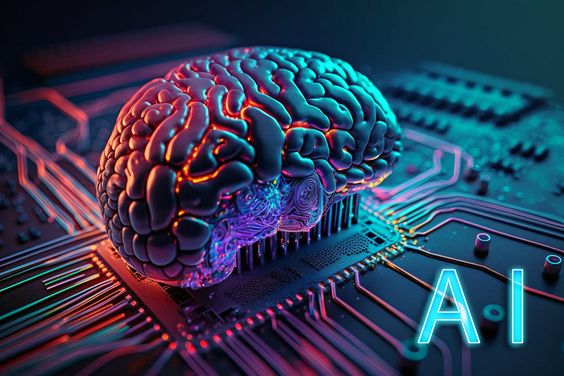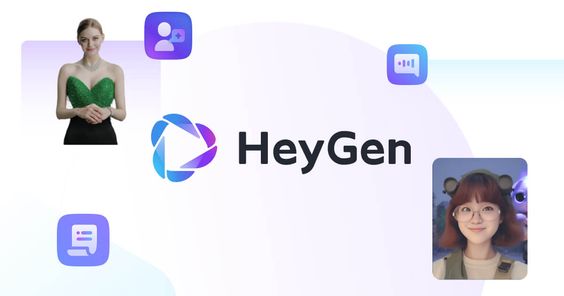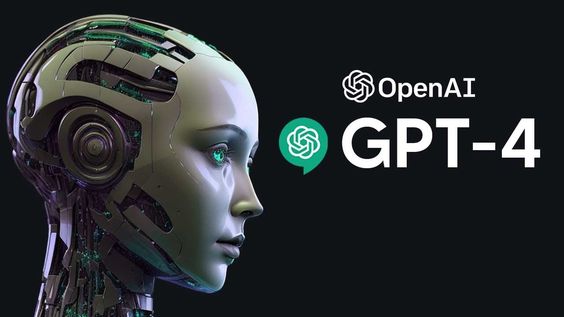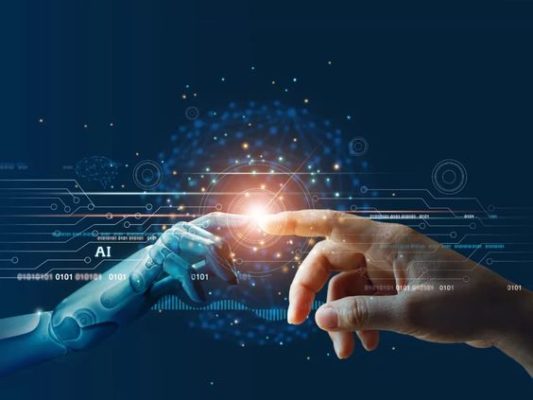ChatGPT Revolution: Transforming Gaming, Film, and Entertainment Experiences
In this article, we explore the transformative potential of ChatGPT in the realm of gaming, film, and entertainment. ChatGPT, a cutting-edge AI model developed by OpenAI, offers a myriad of possibilities for creating immersive and engaging experiences across various entertainment mediums. From interactive storytelling in games to script generation for films and television, ChatGPT is poised to revolutionize how entertainment content is created and consumed. We delve into the ways ChatGPT can be harnessed to enhance NPC interactions in games, generate dynamic scripts for movies, and even influence pop culture trends. Moreover, we discuss the broader implications of ChatGPT’s integration into entertainment experiences and speculate on its future impact on the industry. Join us as we explore the exciting intersection of AI and entertainment with ChatGPT at the forefront of innovation.

Introduction
In recent years, Artificial Intelligence (AI) has emerged as a game-changer in various industries, including entertainment. At the forefront of this AI revolution stands ChatGPT, a powerful language model developed by OpenAI. ChatGPT is renowned for its ability to generate human-like text based on the input it receives, making it a versatile tool for a wide range of applications.
This introduction serves as a gateway to exploring the intersection of ChatGPT and the entertainment industry, highlighting its capabilities and the significance of AI in shaping the future of entertainment.
Overview of ChatGPT and its capabilities:
ChatGPT is a state-of-the-art natural language processing (NLP) model trained on vast amounts of text data. It employs a deep learning architecture known as the transformer model, which enables it to understand and generate human-like text. With its remarkable language understanding and generation capabilities, ChatGPT can engage in meaningful conversations, answer questions, and even create original content across various genres.
Importance of AI in the entertainment industry:
AI has become increasingly prevalent in the entertainment industry, revolutionizing how content is created, personalized, and consumed. In gaming, AI technologies enhance player experiences by enabling dynamic storytelling, intelligent NPCs, and adaptive gameplay. In film and television, AI-powered tools facilitate scriptwriting, video editing, and visual effects creation. Moreover, AI-driven algorithms influence pop culture trends, social media content, and audience engagement strategies.
As we delve deeper into the applications of ChatGPT in gaming, film, and other forms of entertainment, we'll explore how this innovative AI model is reshaping the landscape of entertainment production and consumption. From interactive storytelling experiences to AI-generated scripts, ChatGPT is paving the way for a new era of immersive and engaging entertainment content.
ChatGPT in Gaming
ChatGPT's integration into the gaming industry has opened up exciting possibilities for enhancing player experiences and revolutionizing the way games are developed and played. Here are some key ways in which ChatGPT is making its mark in gaming:
Utilizing ChatGPT for interactive storytelling in games:
Traditional storytelling in games often follows pre-scripted narratives with limited player agency. However, with ChatGPT, game developers can introduce dynamic and interactive storytelling elements. By incorporating ChatGPT into dialogue systems, players can engage with in-game characters in natural language, shaping the narrative through their choices and interactions. This dynamic storytelling approach adds depth and immersion to the gaming experience, allowing players to influence the outcome of the story based on their decisions.
Enhancing NPC (non-playable character) interactions with ChatGPT:
NPCs play a crucial role in enriching the gaming environment, providing players with quests, information, and challenges. ChatGPT can be leveraged to imbue NPCs with conversational abilities, enabling more lifelike interactions between players and in-game characters. NPCs powered by ChatGPT can respond intelligently to player inquiries, offer personalized guidance, and adapt their behavior based on the player's actions and preferences. This enhances the realism and immersion of the game world, making players feel more connected to the virtual environment.
Creating dynamic and personalized gaming experiences:
ChatGPT enables game developers to create dynamic and personalized gaming experiences tailored to individual players. By analyzing player input and behavior in real-time, ChatGPT can generate personalized content, such as dialogue options, quests, and challenges, that align with the player's preferences and playstyle. This dynamic content generation fosters replayability and keeps players engaged by providing unique experiences with each playthrough. Additionally, ChatGPT can adapt the game difficulty level based on the player's skill level and progression, ensuring a challenging yet enjoyable gaming experience for all players.
In summary, ChatGPT is transforming the gaming landscape by introducing interactive storytelling, enhancing NPC interactions, and delivering personalized gaming experiences. As game developers continue to innovate with ChatGPT-powered features, players can look forward to more immersive, dynamic, and engaging gaming experiences in the future.
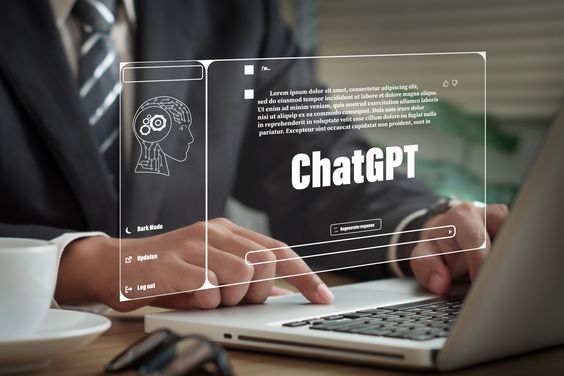
ChatGPT in Film and Television
The integration of ChatGPT into the film and television industry is revolutionizing content creation processes and enhancing the quality of storytelling. Here's how ChatGPT is making its mark in film and television production:
Generating scripts and storylines with ChatGPT:
ChatGPT's natural language generation capabilities make it a valuable tool for generating scripts and storylines for films and TV shows. Writers and filmmakers can use ChatGPT to brainstorm ideas, explore different narrative directions, and overcome creative blocks. By providing prompts or outlines, ChatGPT can generate dialogue, scenes, and plot twists, serving as a collaborative writing assistant that complements human creativity.
Improving dialogue and character development in films and TV shows:
Dialogue is a critical component of storytelling in films and TV shows, shaping characters' personalities, relationships, and motivations. ChatGPT can help writers craft authentic and compelling dialogue that resonates with audiences. By analyzing character traits, speech patterns, and context, ChatGPT can suggest dialogue lines that are consistent with each character's personality and voice, enhancing character development and enriching storytelling.
Enhancing virtual actors and digital avatars using ChatGPT technology:
ChatGPT's ability to generate human-like text opens up new possibilities for creating virtual actors and digital avatars with realistic conversational abilities. Filmmakers and animators can use ChatGPT to animate virtual characters' lipsync, facial expressions, and body language in sync with generated dialogue. This enables the creation of immersive and interactive storytelling experiences, such as virtual reality films and animated series, where viewers can engage with virtual characters in real-time conversations.
In summary, ChatGPT is empowering filmmakers and content creators to streamline scriptwriting, elevate dialogue quality, and enhance character development in films and TV shows. By leveraging ChatGPT technology, the entertainment industry can push the boundaries of storytelling and deliver more immersive and engaging content to audiences worldwide.

ChatGPT in Pop Culture
ChatGPT's influence extends beyond traditional media, permeating into the realm of pop culture and shaping the digital landscape in profound ways. Here's a closer look at how ChatGPT is leaving its mark on pop culture:
Analyzing ChatGPT's impact on internet culture and memes:
ChatGPT has become a driving force behind internet culture, influencing the creation and propagation of memes, jokes, and viral content. Its ability to generate text that mimics human conversation has made it a popular tool for generating humorous or relatable content that resonates with online audiences. By analyzing internet trends and user-generated content, ChatGPT can provide insights into the evolving nature of internet culture and the dynamics of online communities.
Exploring ChatGPT's role in creating viral content and trends:
ChatGPT's text generation capabilities have contributed to the creation of viral content and trends across social media platforms and online forums. From witty tweets and catchy slogans to viral challenges and hashtag campaigns, ChatGPT-generated content has the potential to capture the attention of millions of users and drive engagement. Its ability to adapt to the tone and style of different online communities makes it a versatile tool for content creators seeking to spark conversations and generate buzz.
Integrating ChatGPT into social media platforms and online communities:
Social media platforms and online communities are increasingly integrating ChatGPT-powered features to enhance user experiences and foster engagement. Chatbots powered by ChatGPT can interact with users in real-time, providing personalized recommendations, answering questions, and facilitating conversations on various topics. Additionally, ChatGPT can be used to automate content moderation, detect spam or abusive behavior, and maintain the integrity of online communities.
In summary, ChatGPT's presence in pop culture is evident through its influence on internet culture, meme creation, and viral content. As ChatGPT continues to evolve and integrate into social media platforms and online communities, its impact on pop culture will only continue to grow, shaping the way we communicate, share content, and engage with each other online.
ChatGPT in Other Entertainment Experiences
ChatGPT's versatility extends beyond traditional mediums like gaming, film, and pop culture, with applications in a wide range of other entertainment experiences. Here's how ChatGPT is reshaping the landscape of entertainment beyond the usual realms:
Designing immersive chatbot experiences for amusement parks and attractions:
Amusement parks and attractions are leveraging ChatGPT to create immersive and interactive experiences for visitors. Chatbot characters powered by ChatGPT can engage with guests, provide information about attractions, and offer personalized recommendations based on visitor preferences. These chatbot experiences enhance the overall guest experience, adding an element of interactivity and engagement to the park environment.
Implementing ChatGPT in interactive storytelling experiences, such as escape rooms or virtual reality adventures:
Interactive storytelling experiences, such as escape rooms and virtual reality adventures, are incorporating ChatGPT to enhance narrative immersion and player engagement. Chatbot characters within these experiences can guide players through the story, provide hints or clues, and react dynamically to player actions and decisions. By integrating ChatGPT, creators can create more dynamic and personalized storytelling experiences that adapt to the player's choices and preferences.
Exploring ChatGPT's potential in live performances and interactive events:
ChatGPT's real-time text generation capabilities make it well-suited for enhancing live performances and interactive events. From interactive theater productions to live gaming tournaments, ChatGPT can interact with audience members, respond to audience input, and even participate in onstage interactions. By incorporating ChatGPT into live events, creators can create unique and memorable experiences that blur the lines between performance and audience interaction.
In summary, ChatGPT's applications in entertainment extend beyond traditional mediums, encompassing immersive experiences in amusement parks, interactive storytelling adventures, and live performances. As creators continue to explore ChatGPT's potential in new and innovative ways, we can expect to see a proliferation of engaging and immersive entertainment experiences that leverage the power of AI-driven interaction.
Future Outlook
As we look ahead, the future of ChatGPT and its role in shaping the future of entertainment is filled with exciting possibilities and opportunities for innovation. Here's a glimpse into what the future may hold:
Speculating on the evolution of ChatGPT:
ChatGPT is poised to undergo significant advancements in the coming years, with improvements in language understanding, generation, and interaction capabilities. Future iterations of ChatGPT may exhibit even more human-like conversational abilities, enabling deeper immersion and engagement in entertainment experiences. Additionally, ChatGPT may integrate with other emerging technologies such as augmented reality (AR) and virtual reality (VR), further enhancing its role in creating immersive entertainment content.
Shaping the future of entertainment:
ChatGPT's role in entertainment is likely to expand beyond its current applications, influencing the creation and consumption of content across various mediums. From personalized gaming experiences to AI-driven film and television production, ChatGPT will continue to play a pivotal role in shaping the way entertainment content is created, distributed, and experienced. Moreover, ChatGPT-powered experiences may blur the lines between virtual and real-world interactions, offering audiences new ways to engage with entertainment content.
Discussing emerging trends and opportunities for innovation:
The convergence of AI, entertainment, and emerging technologies presents numerous opportunities for innovation and creativity. ChatGPT's integration with AR, VR, and mixed reality (MR) technologies could lead to the development of immersive storytelling experiences that transcend traditional boundaries. Additionally, advancements in natural language processing and machine learning algorithms may enable ChatGPT to generate content in multiple languages and dialects, catering to a global audience.
In summary, the future of ChatGPT in entertainment is bright, with endless possibilities for innovation and creativity. As AI technology continues to evolve, we can expect to see ChatGPT playing an increasingly integral role in shaping the future of entertainment, offering audiences new and immersive experiences that push the boundaries of storytelling and interaction.
Conclusion
ChatGPT's journey through the realms of gaming, film, pop culture, and beyond has illuminated the vast potential of AI in transforming entertainment experiences. Its versatility and impact on the entertainment industry are undeniable, paving the way for new possibilities and redefining the boundaries of creativity.
Throughout this exploration, we've witnessed ChatGPT's ability to revolutionize storytelling in gaming, enhance dialogue and character development in film and television, and shape internet culture and pop culture trends. Its integration into various entertainment experiences, from amusement parks to live performances, has ushered in a new era of immersive and interactive entertainment.
As we reflect on ChatGPT's journey, it's clear that AI holds tremendous promise in creating engaging and immersive entertainment content. By harnessing the power of AI-driven technologies like ChatGPT, creators can unlock new levels of creativity, personalization, and interactivity, enriching the entertainment experiences of audiences worldwide.
In conclusion, ChatGPT's impact on the entertainment industry serves as a testament to the transformative potential of AI. As we continue to explore and innovate with AI-driven technologies, we're poised to witness even greater advancements in creating engaging, immersive, and memorable entertainment content that captivates audiences and shapes the future of entertainment as we know it.


